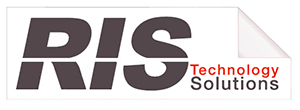Could You Pass the Password Test?
Hacking happens on a regular basis – that’s simply a fact of life on the Internet. Even as network security measures become more sophisticated, so does the technology that enables unauthorized users into a website to swipe identification, access bank account numbers and find other confidential data.
No business, not matter how large or powerful, can completely escape the risk of hacking. But any business can take steps to reduce that risk, and having a good password is the first line of defense.
Are you a password guru? Answer four questions to find out:
- True or False? Hackers don’t know me personally, so no way can they guess my password.
- True or False? Long passwords are typically more secure than short ones.
- True or False? If my password is complicated or hard to remember, a written version of it will help me out.
- True or False? A good password is good forever.
Answers …
- False. With just a little, seemingly minor, information about you – something you mentioned on Facebook or shared in an email – hackers can determine a wide range of possible password hacks. Never put personal information – parts of your name, names of your city, company, kid or dog, and especially not bank account or Social Insurance numbers – into your password. And never choose generic words like “password123” that have proven to be easy targets.
- True. An ideal password should be eight characters or more, and include random capitalization, numbers or symbols. For example, “westcoast” would be better served by “wEstC0#st”
- False. Unless you have a 100 percent foolproof hiding place, never write your passwords where someone could find them. Don’t put sticky notes on your computer monitor. Don’t tuck them into your wallet (lest your wallet be lost or stolen). If you must share your password with someone else, change it immediately afterward.
- False. You can help keep hackers at bay by revising your password every 90 days. And don’t use the same password for all your logins. Instead, create unique passwords for each site you use.
Using these password best practices and educating staff members on the importance of a strong password can help keep your company safe.


